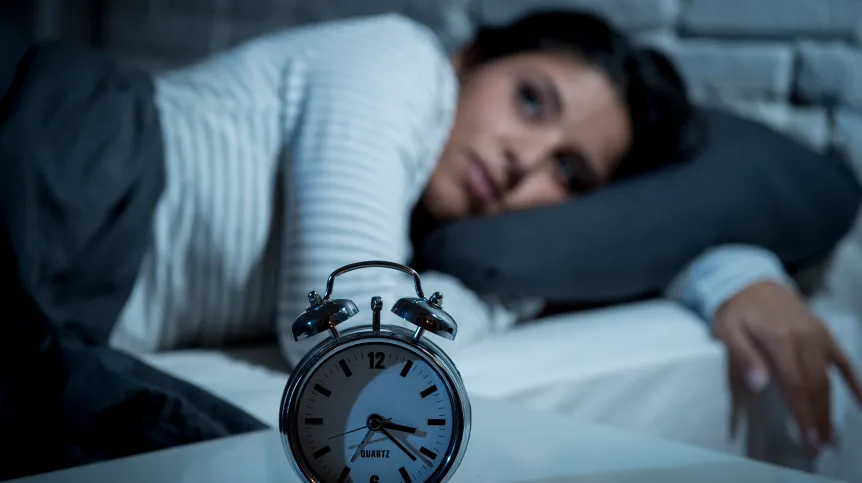
According to Professor Monika Białecka from the Pomeranian Medical University in Szczecin, sleep isn't just a one-size-fits-all issue; it has a distinctive gender flair that can dramatically affect treatment choices.
Studies show that women, for instance, tend to rate their sleep as poorer than men do and experience more ups and downs in their sleep patterns.
The reason lies in a cocktail of hormonal changes throughout the menstrual cycle combined with a higher occurrence of anxiety and depression. As Białecka notes: ‘Poor sleep quality in women is closely tied to these mental health issues,” which tend to strike twice as often in women compared to men.
'In women, poorer sleep quality is mainly associated with anxiety disorders and depression, which occur twice as often in women as in men. In addition, women are at a much higher (25 to 50 percent) risk of developing restless legs syndrome and a four times higher risk of eating disorders in the form of frequent snacking at night. In turn, men are diagnosed with obstructive sleep apnoea three times more often’, says Białecka.
On the flip side, men have their own hurdles, being diagnosed with obstructive sleep apnoea at three times the rate of women. It’s clear that the sleep landscape is far from uniform.
Work schedules add another layer of complexity. Both men and women working shifts are at an increased risk of developing type 2 diabetes, but men face an even greater threat. For women on the night shift, the stakes are equally high, with a staggering 50 percent higher chance of ending up overweight or obese compared to those who work during the day.
Professor Białecka says: ‘Recognizing these gender differences is crucial if we want to approach sleep disorders effectively.” For example, she points out that melatonin, the hormone that helps regulate our sleep-wake cycle, is released earlier in women than in men. This simple biological distinction suggests that treatments should be customized based on gender.
When it comes to managing insomnia, Professor Białecka recommends a mix of common-sense methods and clinical interventions. Short-term insomnia can often be tackled by incorporating good sleep hygiene and, when necessary, appropriate medications. For more chronic cases, she champions cognitive-behavioral therapy as the go-to treatment. With modern diagnostic tools like polysomnography, we can delve deeper into the complexities of sleep, although accessibility remains a challenge in Poland.
From benzodiazepines and Z drugs to the nuanced use of antidepressants and antipsychotics, there's a whole arsenal of options for combating sleep issues. For those over 55, prolonged-release melatonin becomes a valuable ally. ‘This safe drug doesn’t lead to tolerance or addiction,’ she says, adding that it’s particularly helpful for those who struggle with sleep disruptions during travel.
However, not all remedies are created equal. Professor Białecka advises steering clear of cannabinoids for sleep problems. These substances can actually worsen sleep quality, especially in older adults—an important consideration, given that women may be more susceptible to these adverse effects.
At the heart of her message is a simple yet profound reminder: seeking help for sleep disorders is not a solo endeavor. It’s vital to consult with a healthcare professional, and remember that sleep disturbances can ripple outward, affecting not just the individual, but also their sleeping partner.(PAP)
zbw/ agt/













